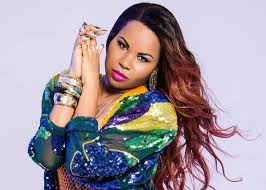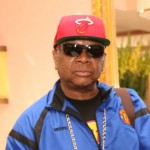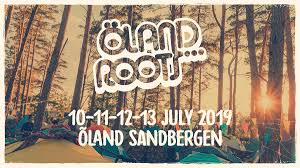Sade Gardner – Sunday Gleaner Writer—-t

Koffee at her recent Reggae Sumfest debut.—
Jamaica, once the pioneer for providing platforms to showcase our own talent, has been reduced to three major music festivals annually, Rebel Salute, the International Ocho Rios Jazz Festival, and the recently concluded Reggae Sumfest. On the flipside, reggae shows have increased on the international circuit beyond the popular Rototom Sunsplash festival held in Spain, German Summerjam festival and the American 9 Mile Music Festival, Groovin’ in the Park and Best of the Best Music Fest.
Two weeks ago, Oland Roots unfolded over four days in Sweden and created history as the first-ever festival to feature an all-female line-up of reggae artistes. The night yielded performances from Jamaica’s Ce’cile, Etana, Marcia Griffiths, Ikaya, and Koffee, alongside British Hollie Cook, Swedish Syster Sol, and Dezarie and Reemah from the US Virgin Islands.
Ce’cile described the moment as ‘beautiful’, and visualised such an event taking place in Jamaica.

“I think it could work here, depending on how it is done. it may not work on a huge festival like Sumfest, but we could do it as a little novelty thing, not to try to exclude men, but to try to show homage and respect to the females,” she told The Sunday Gleaner. “A lot of the times, most of the shows are 80 to 90 per cent men, and it just so happens to be that way. I hear a lot of people say sometimes the females are not happening, but that is because our culture is based around being current and having a hot song as opposed to just being a great artiste, performer and legend.”
Ce’Cile added that tailoring festivals is a slippery slope as some audiences may not welcome changes.
“Some things just won’t work certain places, and even in Sweden, that was something new for them, but it worked. It was a smaller festival and it was well-received and really nice,” she said. “Could a bigger festival like Summejam pull that off with just reggae or dancehall artistes from Jamaica? Maybe not right now because it’s still not the norm. I think it could be done but are the patrons ready for that sort off thing? They don’t second-guess when it’s a show with only men and it’s not a political thing. It’s just that it is the norm.”
LACK OF SPONSORSHIP

Experienced artiste manager and booking agent Copeland Forbes recalled trying to pull together an all-female event years ago and the lack of support given to the concept.
He pointed to the trend of corporate entities staging their own reggae and dancehall shows.
“The cost of putting on an ordinary stage show is JMD$10 million and up, and that is a bareback kind of thing because artistes’ fees, promotion, and production is another conversation,” he said. “The corporate companies are keeping their own thing, and that is what brands support ‘cause a dem friends keeping the thing. I tried telling everybody who was putting on shows that if you don’t get sponsorship, you’re gonna run into trouble. When carnival time come around, look how much sponsors are there. When it comes to reggae, there is little or none. Everything else is just dead because of that. Sting gone and everything else is hanging on a thread.”

Forbes, the emcee at Oland Roots, said it was unfortunate that the all-female concept had to unfold outside of the birthplace of reggae.
“It’s our music, but something like that haffi happen way up north to see the realization,” he said. “If you go to one of these local promoters bout all-female, they will tell you there’s not enough females in Jamaica to mek it work. The female thing is a nice thing but it wouldn’t work in Jamaica ‘cause you wouldn’t get the support.
“For it to attract sponsors and pull the crowd, people from different countries would have to be billed. Our people have a way about us. If it’s not a big, hip hop female on it, you won’t get everybody to come out. We love to support other people, but we don’t support ourselves, and it’s a shame.”


You must log in to post a comment.